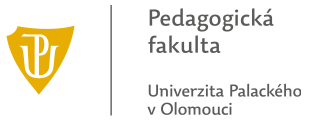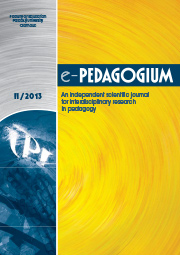e-Pedagogium 2015, 15(3):83-95 | DOI: 10.5507/epd.2015.036
Senioři ve světě nových médií a fenomén digitálního vyloučení v zemích Visegrádské čtyřky
- PhDr. inż. Łukasz Tomczyk, Katedra Pedagogiki Społecznej i Andragogiki, Wydział Pedagogiki, Uniwersytet Pedagogiczny w Krakowie, ul. Ingardena 4, 30-060 Kraków, Rzeczpospolita Polska, E-mail: tomczyk_lukasz@prokonto.pl
Hlavním cílem této práce je popsání specifických aspektů fungování seniorů v informační společnosti v zemích Visegrádské čtyřky. Základní otázka, na niž se text zaměřuje, je, jaké příčiny vedly ke vzniku fenoménu digitálního vyloučení v tomto regionu a dále, jak tento jev ovlivňuje kvalitu života seniorů. Uchopení takto formulované problematiky bude možné prostřednictvím podrobné analýzy faktorů, podmiňujících existenci digitální propasti v České a Slovenské republice, v Polsku a v Maďarsku (V4).
Článek sestává ze tří základních částí. První je teoretický úvod do problematiky vývoje informační společnosti. K tomuto účelu byly mimo jiné aplikované teorie M. Prenského, jenž zkoumal psychosociální fungování digitálních imigrantů a digitálních domorodců v informační společnosti, kompetenční modely příznačné pro informatizovanou společnost či rozdělení jednotlivců na skupinu e-občanů a osoby postižené digitální exkluzí, a to jak reálně tak i zdánlivě. Následuje analýza statistických dat, jež se vztahují k účasti seniorů v informační společnosti. Za účelem komparace byly podrobně analyzovány faktory ovlivňující účast seniorů v realitě nových médií. V závěru se snažíme poukázat na podobnosti a rozdíly fenoménu digitálního vyloučení v zemích V4. Dále zde byl zdůrazněn význam nejpopulárnějších vzdělávacích aktivit v oblasti nových médií, orientovaných na seniory v Polsku, Maďarsku, České a Slovenské republice.
Klíčová slova: digitální vyloučení, senioři, nová média, Internet, Polsko, Česká republika, Slovenská republika, Maďarsko, Visegrádská čtyřka, aktivní stárnutí
Seniors in the Information Society and the Phenomenon of Digital Exclusion in the Visegrad Countries
The main objective of this paper is to describe specific aspects of seniors' life in information society of the Visegrad countries. The fundamental question addressed in the text is what causes have led to the development of the phenomenon of digital exclusion in this region, and further, in what way this phenomenon influences the quality of seniors' lives. It will be possible to cover the issue formulated in this way by means of a detailed analysis of factors determining the existence of digital gap in the Czech and Slovak Republics, Poland and Hungary (V4).
The paper consists of three basic parts. The first one is a theoretical introduction into the issue of the development of information society. Among others, M. Prensky's theories were applied; he studied psychosocial functioning of digital immigrants and digital natives in information society, the competence models characteristic of informatized society or classification of individuals into the group of e-citizens and digitally excluded persons, both really and seemingly. It is followed by an analysis of statistical data related to the seniors' participation in information society. Factors influencing the seniors' participation in the reality of new media were analysed in detail for the sake of comparison. The conclusion tries to point out similarities and differences of the phenomenon of digital exclusion in the V4s countries. It further emphasized the importance of the most popular educational activities in the field of new media oriented on seniors in Poland, Hungary, the Czech and Slovak Republics.
Keywords: digital exclusion, seniors, new media, Internet, Poland, Czech Republic, Slovak Republic, Hungary, Visegrad Four, active ageing
Zveřejněno: 1. červen 2015 Zobrazit citaci
Reference
- Abad, L. (2014). Media Literacy for Older People Facing the Digital Divide: The e-Inclusion Programs Design. Comunicar. vol. 21, n. 42: 173-180.
 Přejít k původnímu zdroji...
Přejít k původnímu zdroji... - Ala-Mutka, K., & Vehovar, V. (January 01, 2010). Status and developments of elearning in the EU10 member states: The cases of Estonia, Hungary and Slovenia. European Journal of Education, 45, 3, 494-513.
 Přejít k původnímu zdroji...
Přejít k původnímu zdroji... - Castells, M. (2010). The rise of the network society. Chichester, West Sussex: Wiley-Blackwell.
 Přejít k původnímu zdroji...
Přejít k původnímu zdroji... - CESNET (2012). Annual Report CESNET. Praha: CESNET. Association of Legal Entities.
- Drbohlav, D., Hárs, Á., Grabowska-Lusińska, I. (2009). Experiencing immigration: Comparative analysis of the Czech Republic, Hungary and Poland. IDEA WP, No. 14.
- EUROSTAT. (2014). Households - level of Internet acces. [online]. [cit. 20. 10. 2013]. Dostupné z: http://epp.eurostat.ec.europa.eu/tgm/graph.do?tab=graph&plugin=1〈uage=en&pcode=tin00134&toolbox=type
- EUROSTAT. (2014). Individuals who never used the Internet - whether at home, at work or from anywhere else and whether for private or professional purposes. [online]. [cit. 20. 10. 2013]. Dostupné z: http://epp.eurostat.ec.europa.eu/tgm/table.do?tab=table&init=1&plugin=1〈uage=en&pcode=tin00093
- EUROSTAT. (2014). Individuals - Internet use. [online]. [cit. 20. 10. 2013]. Dostupné z: http://appsso.eurostat.ec.europa.eu/nui/show.do?dataset=isoc_ci_ifp_iu〈=en
- Fabiś, A. (2014). Uczący się seniorzy. Uwarunkowania uczenia się osób starszych w Polsce. In Fabiś, A., Muszyński, M., Tomczyk, Ł. & Zrałek, M. (eds.) Starość w Polsce. Aspekty społeczne i edukacyjne. Oświęcim: Państwowa Wyższa Szkoła Zawodowa.
- Goban-Klas, T., & Sienkiewicz, P. (1999). Społeczeństwo informacyjne: szanse, zagrożenia, wyzwania. Kraków: Wydaw. Fundacji Postępu Telekomunikacji.
- Juza, M. (January 01, 2011). Społeczność polskich pionierów Internetu i jej dokonania. 20 lat Internetu w Polsce. Studia Socjologiczne, 2011, 3, 7-28.
- Kelly, T., Minges, M., Srivastava, L. & PERGEL, J. (2001). Internet in a transition economy: Hungary case study. Geneva: International Telecommunication Union.
- Krystoň, M. (2013). System of education of older adults in Slovakia. In Kocianová, R. (ed.). Analysis and Comparison of Forms and Methods for the Education of Older Adults in the V4 Countries. Praha: Filozofická fakulta Univerzity Karlovy.
- Kucsera, C. (2013). Improving the Quality of Life of the Elderly with ICT - Results of an R&D Project. In Széman, Z. (ed.). Challenges of Ageing Societies in the Visegrad Countries. Budapest: Hungarian Charity Service of the Order of Malta.
- Lupač, P. & SLÁDEK, J. (2008). The Deepening of the Digital Divide in the Czech Republic. Cyberpsychology: Journal of Psychosocial Research on Cyberspace, 2(1), article 1.
- Organisation for Economic Co-operation and Development. (2013). OECD skills outlook 2013: First results from the survey of adult skills.
- Pieri, M., Diamantinir, D., & 2nd World Conference on Educational Sciences, WCES-2010. (October 13, 2010). Young people, elderly and ICT. Procedia - Social and Behavioral Sciences, 2, 2, 2422-2426.
- Posfai, M., & Fejer, A. (December 01, 2008). The eHungary Programme 2.0. Innovation,21, 4, 407-415.
 Přejít k původnímu zdroji...
Přejít k původnímu zdroji... - Prensky, M., (2001). Digital Natives, Digital Immigrants Part 1. On the Horizon, Vol. 9 Iss: 5, pp.1-6.
 Přejít k původnímu zdroji...
Přejít k původnímu zdroji... - Prensky, M., (2012). From Digital Natives to Digital Wisdom: Hopeful Essays for 21st Century Learning. London: SAGE Publications.
 Přejít k původnímu zdroji...
Přejít k původnímu zdroji... - Rodrigues, E., Carreira, M., Goncalves, D., & 5th International Conference on Software Development and Technologies for Enhancing Accessibility and Fighting Info-Exclusion, DSAI 2013. (January 01, 2013). Developing a multimodal interface for the elderly. Procedia Computer Science, 27, 359-368.
 Přejít k původnímu zdroji...
Přejít k původnímu zdroji... - Şar, A., Göktürk, G., Tura, G. & Kazaz, N. (2012). Is The Internet Use An Effective Method To Cope With Elderly Loneliness And Decrease Loneliness Symptom? Procedia Social and Behavioral Sciences, 55, 1053-1059.
 Přejít k původnímu zdroji...
Přejít k původnímu zdroji... - Šerák, M. (2013). System of education of older adults in the Czech Republic. In Kocianová, R. (ed.). Analysis and Comparison of Forms and Methods for the Education of Older Adults in the V4 Countries. Praha: Filozofická fakulta Univerzity Karlovy.
- Statistical Office of the European Communities, Seybert, H., & Reinecke, P. (2013). Three quarters of Europeans used the internet in 2013.
- Sheng, X. & Simpson, P. M. (2013). Seniors, Health Information, and the Internet: Motivation, Ability, and Internet Knowledge. (January 01, 2013). Cyberpsychology Behavior and Social Networking, 16, 10, 740-746.
 Přejít k původnímu zdroji...
Přejít k původnímu zdroji... - Sum, S., Mathews, R. M., Hughes, I., & Campbell, A. (January 01, 2008). Internet use and loneliness in older adults. In: Cyberpsychology & Behavior, 11, 2, 373-386.
 Přejít k původnímu zdroji...
Přejít k původnímu zdroji... - Sum, S., Mathews, R. M., Pourghasem, M., & Hughes, I. (January 01, 2009). Internet use as a predictor of sense of community in older people. Cyberpsychology & Behavior: the Impact of the Internet, Multimedia and Virtual Reality on Behavior and Society, 12, 2, 235-239.
 Přejít k původnímu zdroji...
Přejít k původnímu zdroji... - Széman, Z. (2013). Methods of education of older adults in Hungary. In Kocianová, R. (ed.). Analysis and Comparison of Forms and Methods for the Education of Older Adults in the V4 Countries. Praha: Filozofická fakulta Univerzity Karlovy.
- Tomczyk, Ł. (2011). Trends And Contexts On Education Of Senior In The Range Of Information Technology In Poland. In Conference proceedings of "eLearning and Software for Education" (eLSE) issue: 02/2011, 121-126.
- Vaněk, J., Jarolímek, J., & Šimek, P. (January 01, 2008). Development of communication infrastructure in rural areas of the Czech Republic. Zemědelská Ekonomika, 54, 129-134.
 Přejít k původnímu zdroji...
Přejít k původnímu zdroji... - Velšic, M. (2011). Digital Literacy in Slovakia 2011. In ICETA 2011. 9th IEEE International Conference on Emerging eLearning Technologies and Applications, Proceedings, 223-226.
 Přejít k původnímu zdroji...
Přejít k původnímu zdroji... - Webster, F. (2006). Theories of the information society. London: Routledge.
 Přejít k původnímu zdroji...
Přejít k původnímu zdroji... - Zickuhr, K. & Madden, M. (2012). Older adults and internet use For the first time, half of adults ages 65 and older are online. Washington: Pew Research Center's Internet & American Life. Project.
Tento článek je publikován v režimu tzv. otevřeného přístupu k vědeckým informacím (Open Access), který je distribuován pod licencí Creative Commons Attribution-NonCommercial-ShareAlike 4.0 International License (CC BY-NC-SA 4.0), která umožňuje nekomerční distribuci, reprodukci a změny, pokud je původní dílo řádně ocitováno. Není povolena distribuce, reprodukce nebo změna, která není v souladu s podmínkami této licence.






